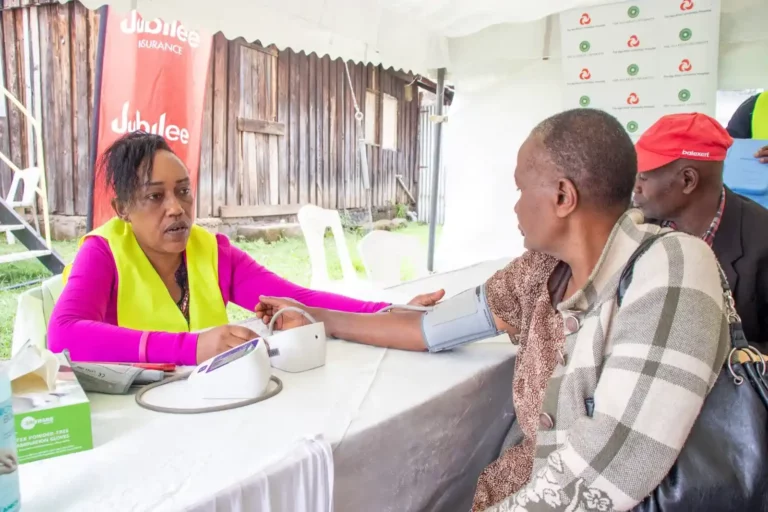Kenya’s insurance industry plays a crucial role in Vision 2030, yet it faces low penetration rates at 3 per cent, ranking third lowest in Sub-Saharan Africa.
While access to health insurance has dropped by 16 per cent since 2019, stakeholders urge Kenyans to leverage its benefits. Affordability (71 per cent) and awareness (20 per cent) remain roadblocks, according to FSD Kenya, the 2021 FinAccess national survey, and the Kenya Demographic and Health Survey (KDHS 2022) reports.
Despite the challenges, there is no doubt that Kenya’s health insurance landscape has witnessed significant growth and transformation over the years, playing a crucial role in ensuring that several Kenyans have access to quality healthcare.
In recent years, Kenya has made commendable strides in expanding healthcare coverage through various insurance programs. The government’s commitment to achieving Universal Health Coverage (UHC) has paved the way for increased private sector participation, fostering healthy competition, and driving improvements in service delivery.
Leading the Charge: Jubilee Health Insurance
One of the key players in Kenya’s health and a leader in health insurance is Jubilee Health Insurance. The company has consistently demonstrated a commitment to providing comprehensive coverage that goes beyond the basics. Their plans encompass a wide range of medical services, from preventive care and outpatient services to critical and specialized treatments. This extensive coverage ensures that policyholders have access to a broad spectrum of healthcare options, promoting early intervention and holistic well-being.
One of the standout features of Jubilee Health Insurance is its dedication to tailoring solutions to the unique healthcare challenges faced by Kenyans. Recognizing the prevalence of non-communicable diseases and the importance of preventive measures, Jubilee Health Insurance places a strong emphasis on wellness programs and health screenings through their Maisha Fiti wellness proposition.
What is more, in an era of rapid technological advancement, Jubilee Health Insurance has embraced digital transformation to enhance its customer experience. Through their user-friendly mobile app, dubbed Maisha Fiti and online portals, policyholders can easily access information and track their healthcare expenses. This not only simplifies administrative processes but also empowers individuals to take control of their health and well-being.
Jubilee Health Insurance has established a robust network of over 800 healthcare providers across the country, ensuring that policyholders have access to quality medical services wherever they are. This network includes reputable hospitals, clinics, and specialists, fostering a collaborative approach to healthcare delivery and catering to the needs of Kenyans across all classes.
Why Kenyans Need Health Insurance
There is no doubt that Kenyans need health insurance for several reasons. Access to quality healthcare is essential for the overall well-being of individuals and communities, and health insurance plays a pivotal role in ensuring that access.
In Kenya, as in many other parts of the world, medical expenses can be prohibitively high, making it challenging for individuals and families to afford necessary healthcare services. Last year, Jubilee Health Insurance introduced a budget inpatient cover, COVERBORA, which addresses this critical need for affordability.
With low premiums starting at only Ksh 6,200 per annum for individuals and Ksh 12,600 for a family of up to four dependents, you gain access to comprehensive inpatient cover, last expense benefits, maternity cover, access to road evacuations, and so much more.
These kinds of affordable solutions are welcomed as they help to address the dilemma of affordability in health insurance. Health insurance acts as a financial safety net, helping to alleviate the burden of medical costs and ensuring that individuals can access timely and appropriate medical care without facing financial hardship.




